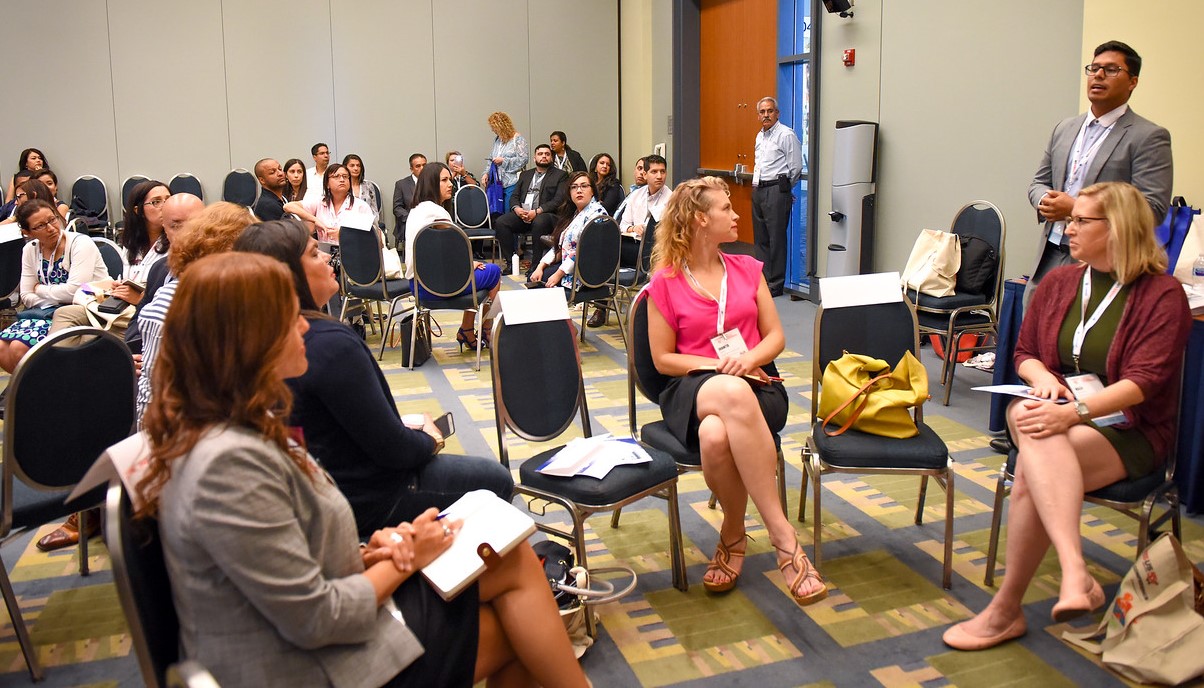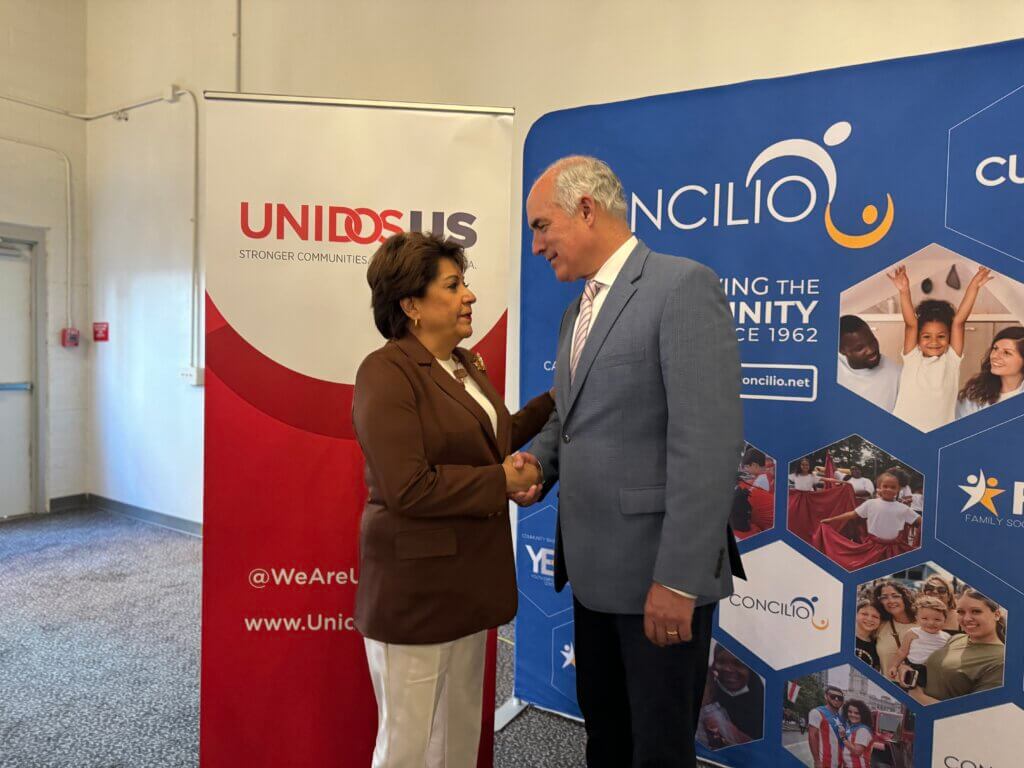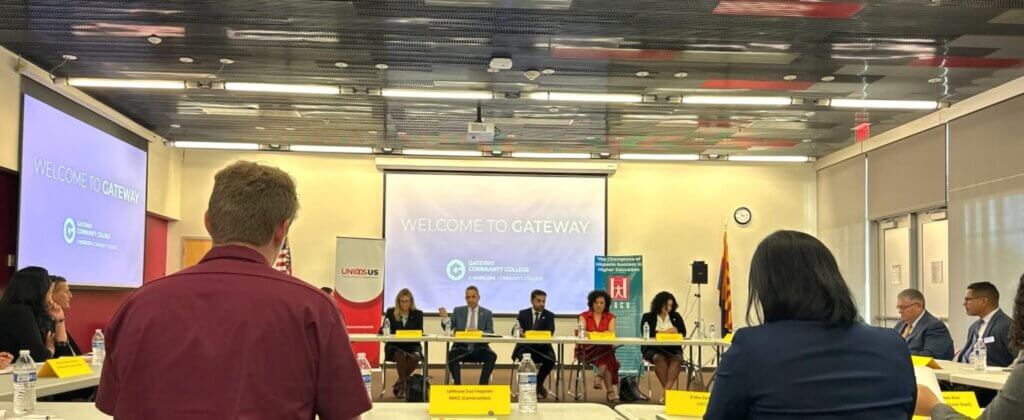Community-based organizations: Here are 4 essentials to strengthen your workforce development program

UnidosUS Workforce Development (WFD) team’s main goal is to develop the capacity of community-based organizations to deliver high-quality trainings and services to Latinos. The recent 2018 UnidosUS Annual Conference presented an opportunity to convene these organizations from around the country so they could learn, network, and share.
Conversations revolved around how to strengthen programming, maximize participant success, and innovatively engage employer partners. Below are four key takeaways you can use to strengthen your WFD program, as shared by UnidosUS Affiliates.
- PUT FEET ON THE STREET FOR EFFECTIVE RECRUITMENT
Even long-established programs can sometimes struggle with recruitment. At times, flyers, radio ads, and referrals from other programs just do not get enough participants in the door, or they might not attract the right type of participant.
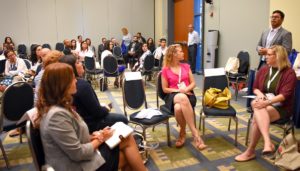
As Julieta Machado from Catholic Charities of the Archdiocese of Washington shared, programs must recruit participants from where they live and spend time. This includes going to stores, churches, community events, and other locations where participants may hang out.
In addition, staff should always be in “recruitment mode”—ready to engage with individuals wherever they meet, even after official recruitment ends. For example, your next star participant in search of “upskilling” opportunities could be the cashier that rings you up at the grocery store or the associate at the mall. So, it is important to always be ready to promote the program (ideally with flyers in hand)!
- STRENGTHEN RETENTION BY BUILDING TRUST AND RELATIONSHIPS
A big reason for the success UnidosUS Affiliates have had with retention is the trust and relationships they build with participants.
Aracelly Watts, Vice Principal at the Carlos Rosario International Public Charter School in Washington, DC, shared the success their programs have had using student WhatsApp groups for relationship building. These virtual groups strengthen participant connections by making it easier for them to share class updates, answer common questions, and celebrate each other’s success.
- MAXIMIZE STUDENT LEARNING THROUGH BLENDED LEARNING
In 2017, UnidosUS published the UnidosUS Blended Learning toolkit to help Affiliates use technology to provide participants more flexibility in learning.
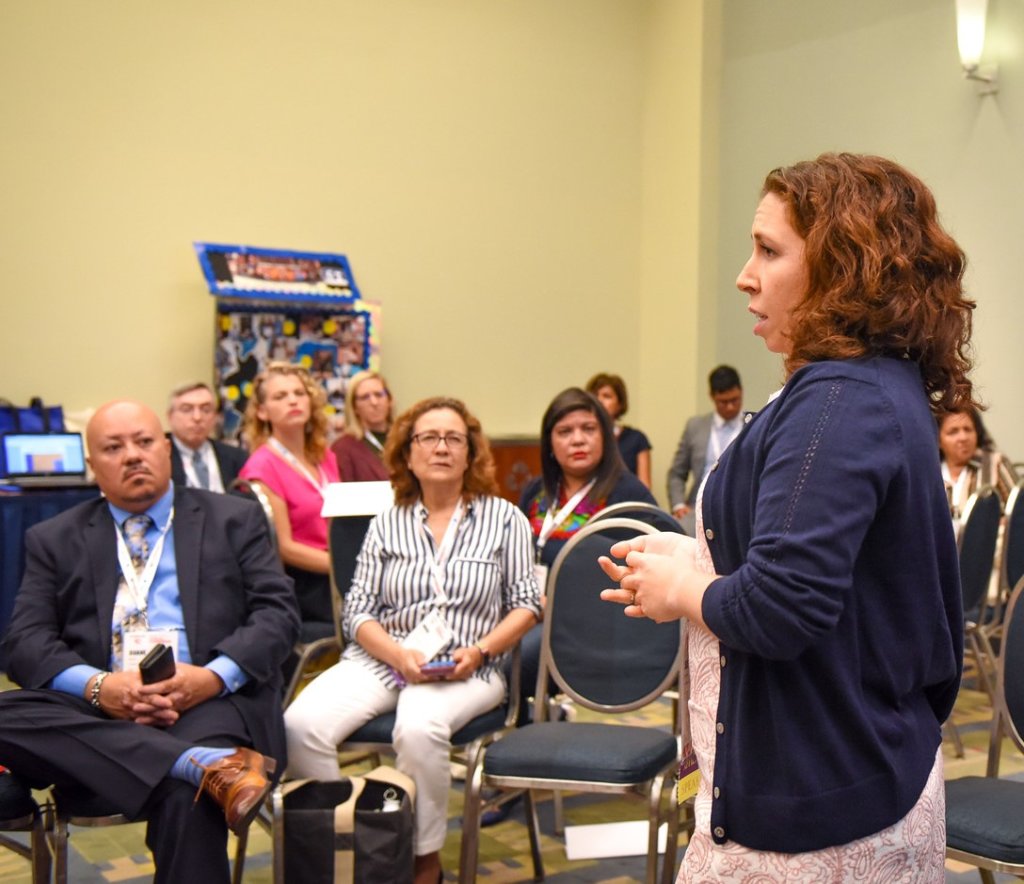
Sarah Cohn from PODER in Chicago, IL, shared PODER’s experience piloting a blended learning model while implementing the UnidosUS Advancing Retail Initiative. Participants in these cohorts watched videos and completed assignments at home during the week and attended class in-person one day on the weekend. Due to the flexibility of being able to study at their own pace and time, the program became an instant success leading to increased recruitment, retention, and program completion rate.
- THINK OUTSIDE THE BOX FOR EMPLOYER PARTNERSHIPS
Just like programs look for innovative approaches to engage participants, they should also look into effective employer partnership strategies.
Luz Hernandez from Association House in Chicago, IL, shared the positive results they have seen from engaging employers in the classroom as they implement the UnidosUS Latinos in Finance Initiative. Employers teach about half of all classes in conjunction with Association House, giving real-world insight as to what participants will expect when they start working. In addition, it gives employers an opportunity to identify their future employees during these in-class interactions.
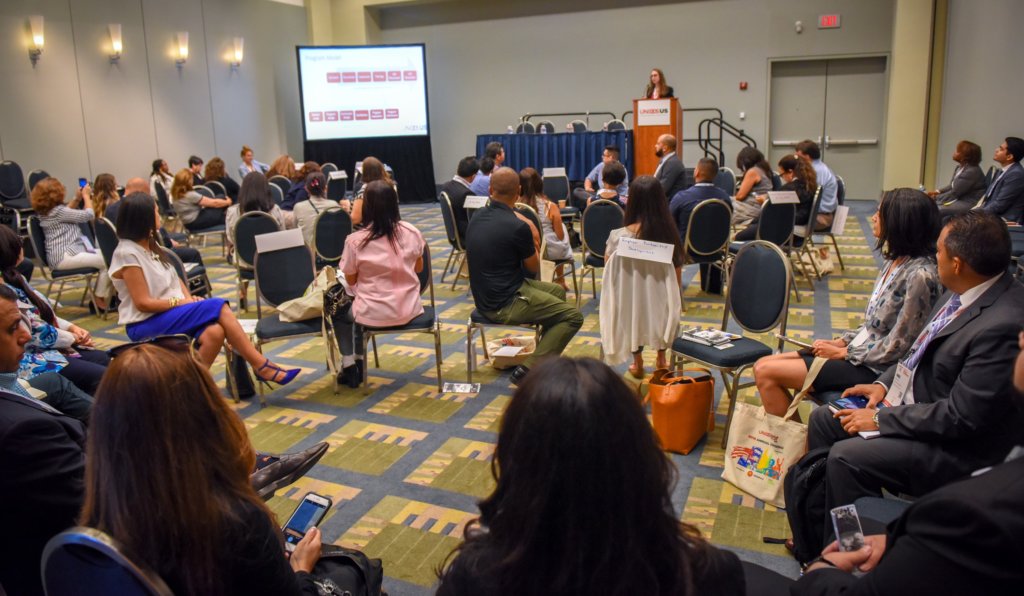
Additionally, Rachel Hirsch from the National Skills Coalition and Janie McDermott from the Baltimore Alliance for Careers in Healthcare (BACH) shared information about effective apprenticeship models and highlighted a health care sector competency-based apprenticeship program implemented by BACH in partnership with Maryland medical centers.
The competency-based strategy is very helpful for immigrants that are licensed medical professionals in their countries but unable to work in the United States due to re-licensing requirements. Through this approach, individuals can still work in the health care sector (not in the same positions as in their home countries) and utilize their previous knowledge.
If you would like to learn more about the UnidosUS Workforce Development program and the best practices developed from evaluation of our initiatives, feel free to reach out to Hiram Cortez at [email protected].
